One Man's Journey is Another Man's History - an unofficial memoir of a 73-year-old in parts (PART 2-1)
Part 2-1: Military Service - 1967-1968
In 1965, after several jobs in nearby towns, twenty-year-old Hans Peter was introduced by a friend to work in a material handling company in Wadgassen. There, he started from the bottom ranks, working as an apprentice to senior engineers, mostly dealing with the installation of conveyor belts in factories. Work was hard, but being Germans, they worked hard and partied hard too. After he mastered some skills, the company sent him to job sites in bordering France.
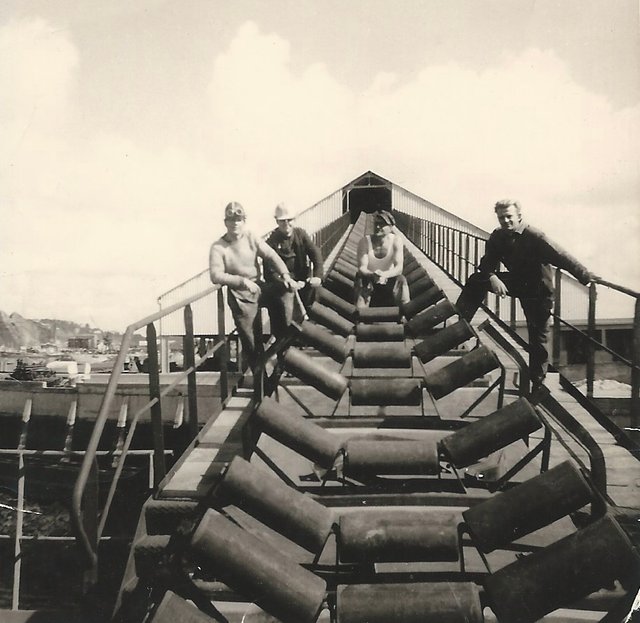
Working on the conveyor belt
At twenty-two, in 1967, Hans Peter was working in a job site in Amiens, north of France. He was seeing a girl there too, Pierette. A girl gifted with languages; besides French, she spoke fluent German and Italian. Everything was so pretty then; a steady job with good income, good working environment, Amiens was a nice place to live, he picked up the French language with ease, found the love of his life. Then the news came.
A little history first:
After the defeat of the Nazis German, Germany was demilitarized and disarmed. The allies divided Germany into four zones of occupation: France in the southwest (except Saar Protectorate as mentioned earlier was detached from Germany and Berlin, which is a multinational area within the Soviet zone), Britain in the northwest, the United States in the south and the Soviet Union in the east. Later in 1949, the three western zones were merged and became West Germany. By the 1950's the Cold War was gaining momentum, and West Germany was urged to share the responsibility to defend against any possible Soviet Union aggression. Hence the German Bundeswehr (armed force) was formed in 1955 and joined NATO. In 1956, the German Compulsory Military Service Act entered into force, where all male citizens reaching draftable age would be drafted to serve in the military between a period of twelve to eighteen months, or serve in the Civil Protection.
Back home in Konfeld, a letter came for Hans Peter from the Bundeswehr. He was drafted to serve in the Bundeswehr for eighteen months. Anna quickly informed his son who was working in Amiens, France to come home at once to report to training. Hans Peter was three weeks short of fulfilling six months of work in France that would entitle him to tax exemptions. However, he failed to convince his mother that it was alright to delay his reporting date due to work reasons. The elders who survived the war were law abiding citizens.
So Hans Peter went home to get ready for military service. There were three other young men from town drafted to the same combat training camps, two of whom was his friend, Koch who was a painter, and Gerd who was a butcher. The beginning of the eighteen-month military serviced began with three months basic training. The four of them went to the train station to catch a train to the Black Forest area where the training camp was but took the wrong train and went the wrong direction. After some hassle, they found the right one and was on their way. It was a clumsy beginning to their incredible life in the military.
The basic training camp in the Black Forest area was not a proper military base, and the guards at the gate were civilians. A trainer led each barrack of nine soldiers. Hans Peter and his friends went to different barracks. Hans Peter's trainer was Herr Schattling. Herr Schattling came from another training camp in Nagold that was shut down in 1963 when a soldier died from heat stroke during training.
Find out more the story of the Nagold scandal here. (The website is in the German language. Readers can use Chrome browser to translate the website to English)
https://www.schwarzwaelder-bote.de/inhalt.nagold-wie-nagold-zur-schleiferstadt-wurde.4b01dca7-14da-438c-b379-038190475720.html
When the scandal broke out, the trainers in Nagold camp came to be known as the Der Schleifer von Nagold (Nagold's Grinder). The training tactics used by the trainers were brutal; where soldiers were forced to do push-ups over open pocket knives. When the camp was closed down, the Bundeswehr transferred the trainers to other camps, and Hans Peter got a Schleifer as his trainer, minus the life-threatening tactics, they were still trained and ground by the trainer who stressed that soldiers were tough men. Hans Peter and his eight other comrades often had to train past training hours, marching in the rain, doing more push-ups, doing salutes over and over again. Soldiers from other barracks would often laugh at them, but Hans Peter and his comrades were taking on the challenges with no complaints. They knew their trainer was a tough man, but they also knew he was soft-hearted too. Despite the training hardships, they all had a good relationship with the trainer. Sometimes on weekends, they would all go to the nearby town to drink.
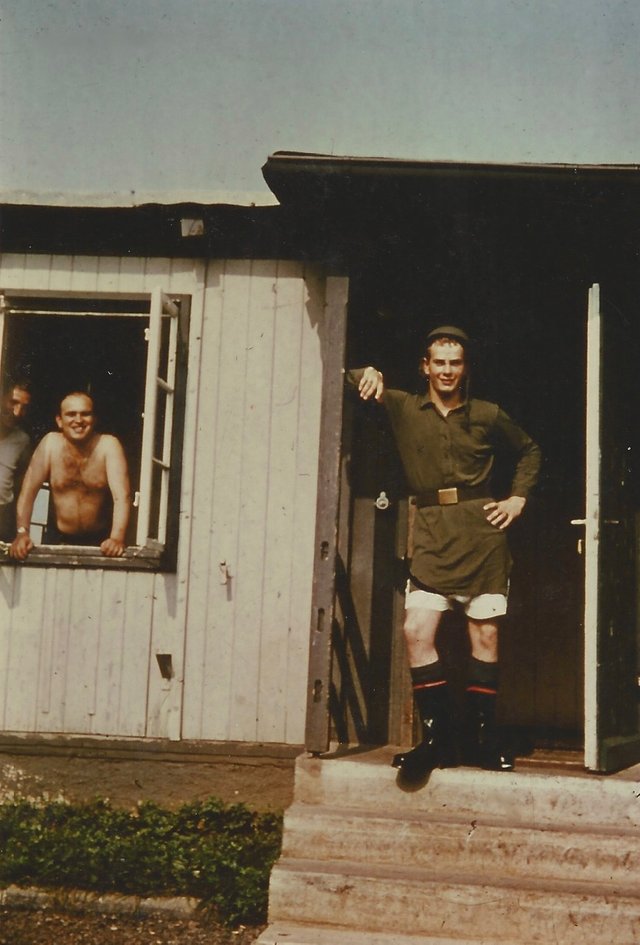 Training camp life
Training camp life
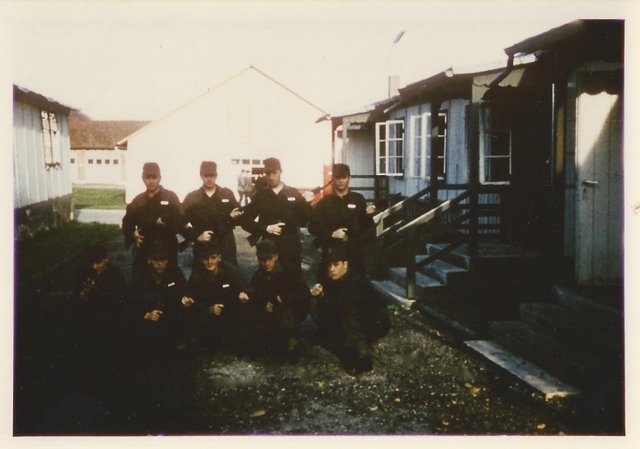 Nine soldiers to a barrack
Nine soldiers to a barrack
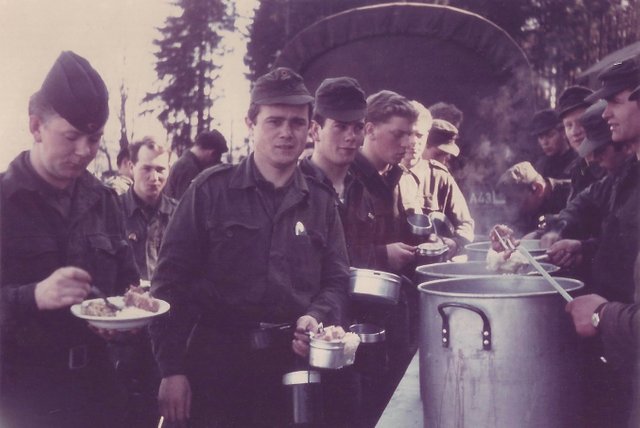
Lunch break during training
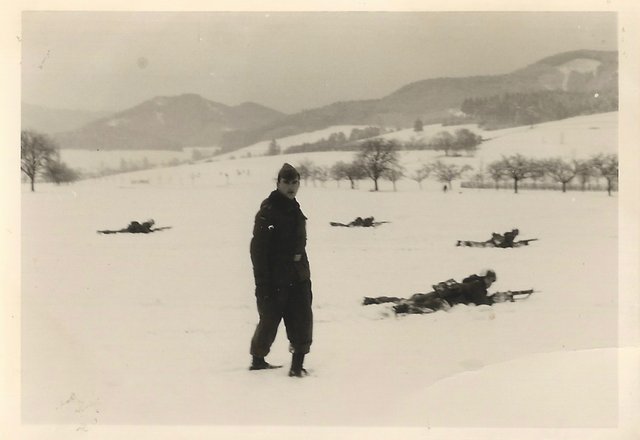
Training regardless of weather
After three months of training, they passed out and were transferred to different military bases for another fifteen months of service. Hans Peter believed they were the 'New Age' German soldiers and vowed to have fun throughout his eighteen-month service. The war was over.
-- You can read earlier parts of the memoir here --
Part 1
Congratulations @melancholee! You received a personal award!
You can view your badges on your Steem Board and compare to others on the Steem Ranking
Vote for @Steemitboard as a witness to get one more award and increased upvotes!